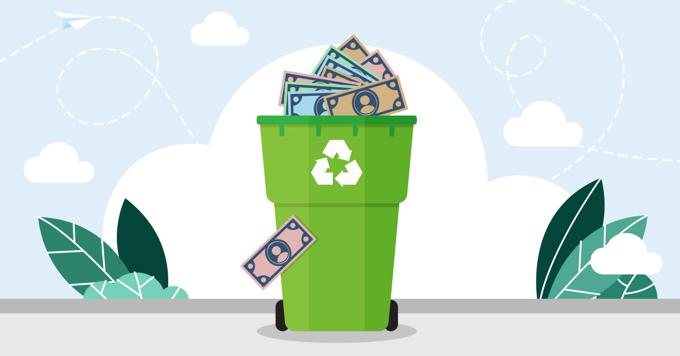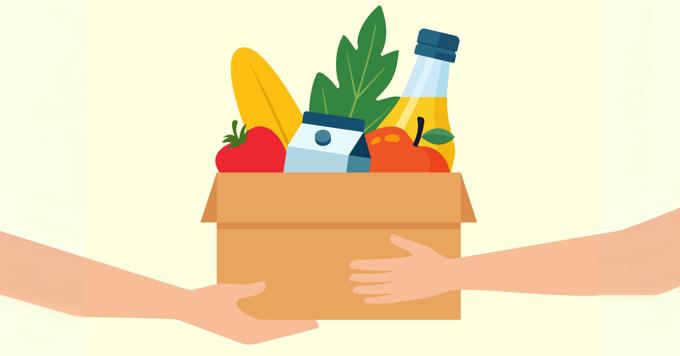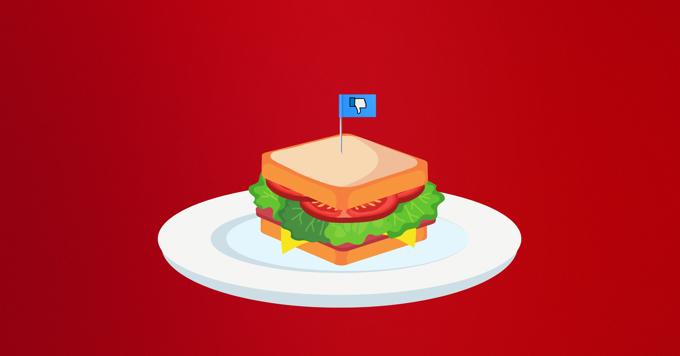We like to think we recycle because it’s the rational thing to do – a logical, low-effort act that serves the greater good. But human behaviour is rarely that straightforward. What if our decision to reach for the blue bin is less about reason, and more about emotion? What if we recycle not just because it’s right – but because it feels right?
This question is at the centre of new research from Jason Nguyen, Ivey Assistant Professor of Operations Management and Sustainability, and his co-authors. In their paper, Pride or Guilt? Impacts of Consumers’ Socially Influenced Behaviors on Closed-Loop Supply Chains, the team explores how behavioural drivers shape consumer intention around recycling. Their findings suggest that reason alone isn’t enough – it’s specific emotions that move people to act. And two in particular stand out: socially-influenced pride and guilt.
The power of a #hashtag
Nguyen was first inspired to study consumers' recycling choices after noticing the impact of a 2018 climate change movement on social media.
“All over Twitter, people were posting travel photos with hashtags like #tågskryt and #flygskam,” he said. “It immediately sparked my curiosity.”
The movement Nguyen stumbled upon was flygskam – Swedish for “flight shame” – which first surfaced on Twitter in 2016. It urged people to reconsider air travel and opt for lower-impact alternatives. In response, a companion hashtag emerged: #tågskryt, or “train brag,” where users proudly shared photos of their journeys by rail, turning sustainable travel into a badge of honour.
What began as a social media trend sparked measurable behavioural shifts. Approximately one year after flygskam-related hashtags began picking up pace online, domestic flights in Sweden fell by 11 per cent while train travel increased at a comparative rate.
Motivated by the success of Sweden’s brag and shame campaign, Nguyen set out to explore how emotions, especially pride and guilt, shape recycling behaviour – a key area where Canadians still fall short. Could these feelings be the key to better habits?
What do you do with your used smartphone?
To anchor their research, Nguyen and team explored the recycling habits of smartphones. Unlike frequent household waste, such as paper, recycling electronics is not as simple as tossing your old iPhone into the blue bin. Privacy concerns, the potential need for a back-up device, and regulated disposal procedures contribute to high e-waste globally.
Managing e-waste is an increasing responsibility for manufacturers – especially those using closed-loop supply chains, where products are made, sold, and eventually returned for reuse. To reduce environmental harm, many firms have adopted remanufacturing, a strategy that relies on consumers properly recycling their used phones.
Yet, a 2020 study reported only eight per cent of respondents recycled their phone and four per cent returned the product to retailers, indicating that a strategic approach is necessary to motivate this first step.
This challenge is exactly where Nguyen focused his research.
Incentivizing peer pressure
Aiming to uncover strategies that boost recycling while supporting tech firms’ bottom lines, Nguyen’s study used a mathematical model to show how different levels of consumer socially-influenced emotions – specifically pride and guilt – influence both community recycling rates and manufacturer earnings. His findings highlight three essential questions for those working to promote recycling at scale:
How much effort is required? Convenience often outweighs good intentions. One of the most critical factors is how easy it is for consumers to recycle a product. If the process is too burdensome, even well-meaning individuals may opt out
Is it worth their while? To offset perceived burden for consumers, firms can use strategic pricing, by offering buy-back incentives for used products and setting prices on new ones in a way that encourages participation in recycling programs.
Are you sparking emotion – or just sharing information? In tandem with these two monetary strategies, Nguyen proposes a third powerful lever: driving socially-influenced emotion.
As observed in the case of #flygskam, and stated in Nguyen’s research, “social influence from friends, family, neighbours and, more recently, contacts within wider communities and social media, [are] important determinants of individuals’ pro-environmental and recycling behaviours.”
In other words, peer pressure can be a powerful tactic in increasing consumer recycling rates.
“In most cases, stronger social influence will lead to a higher recycling rate, which will also lead to a higher profit for the firm,” said Nguyen. This win-win scenario is possible because, “the firm can encourage consumers to recycle because of how the action makes them feel, rather than seeking a cash reward, which can reduce the cost of buying back the used product.”
But how does a firm determine the ‘right’ emotion to influence their audience to recycle?
Emotion-based marketing
Like any industry, a brand’s ability to drive action often hinges on how well it communicates.
When it comes to promoting recycling, companies can take one of two emotional approaches: frame the message around pride to make consumers feel good about doing the right thing, or around guilt to make them feel uneasy about not doing it. In short, it's about motivating through positive reinforcement – or the fear of falling short.
It seems simple, but Nguyen cautions that tapping into the wrong emotion can backfire.
“Pride, or positively framed, campaigns often work well initially when there are few recycling consumers," he said. “However, as the number of recyclers grows, the positively framed campaigns will eventually lose their effectiveness, necessitating potential adjustments toward guilt-based campaigns.”
Positive messaging can be persuasive, but it can just as easily fall flat. When firms overemphasize praise for those who recycle, it may lead others to disengage, assuming their own actions aren’t necessary or harmful. Therefore, Nguyen explains, “the number of peers taking the same action is important” when firms are determining the most effective marketing strategy to target their audience.
The bottom line? Pride-based appeals are most effective when recycling rates are low; guilt becomes more impactful as participation rises.
Ultimately, Nguyen’s research challenges the assumption that pro-environmental behaviours are primarily driven by logic. Instead, it highlights the powerful role of emotion in shaping consumer decision-making. By strategically leveraging socially-influenced pride and guilt, firms and policymakers can design more effective interventions – particularly for complex, high-impact products like smartphones.
We may believe we recycle because it’s the rational choice. But the evidence suggests otherwise: when it comes to sustainability, emotion isn’t a side effect – it’s the strategy.
To learn more, read Nguyen and colleagues’ research, Pride or Guilt? Impacts of Consumers’ Socially Influenced Behaviors on Closed-Loop Supply Chains, published in the Manufacturing & Service Operations Management journal.










